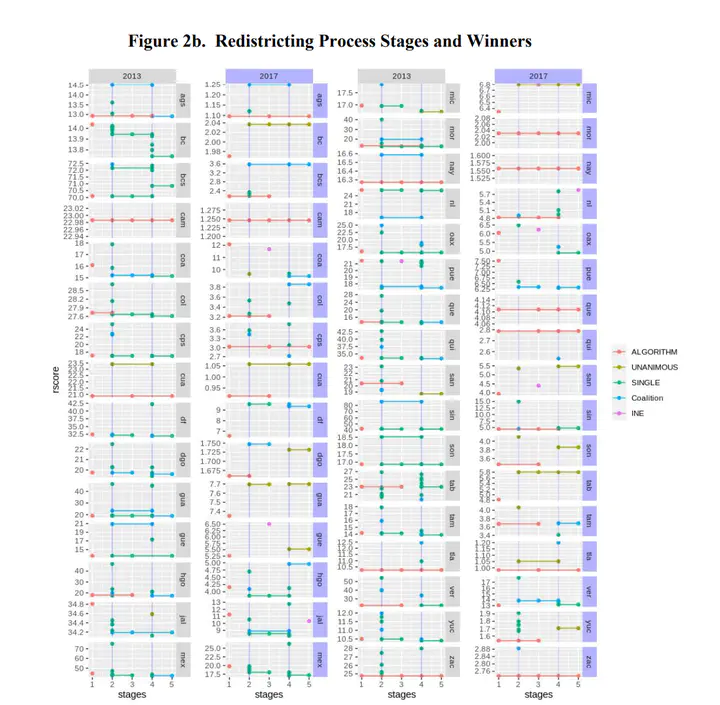No Accountability without Transparency and Consistency: Redistricting-by-Formula in Mexico

Abstract
An independent bureaucracy has carried out automated redistricting processes in Mexico since 1996. However, the process of “fine-tuning” the plans that are initially produced by formula is conducted behind closed doors where parties and experts are allowed to offer proposals. This raises questions about the necessary conditions required for a bureaucracy to operate in a transparent, consistent, and accountable manner. Our research examines this question through the analysis of private records that trace the bargaining process that takes place between parties and bureaucrats. Our results uncover substantial gaps in consistency. We highlight the strengths of the process and offer policy recommendations that can help improve the quality of redistricting in Mexico and in countries cyclically renewing their electoral geography.